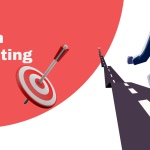If you’ve been wondering whether leadership coaching is just another corporate buzzword or a genuine game-changer, let’s settle that right now: it’s the latter. And in 2025, it’s not just thriving—it’s becoming essential.
The numbers tell a compelling story. The global leadership development coaching market is valued at USD 105.69 billion in 2025, with projections showing it will more than double by 2032. The broader coaching industry sits at USD 5.34 billion and counting. But beyond the impressive figures, there’s something more interesting happening: leadership coaching has evolved from a nice-to-have perk for executives into a strategic necessity for organizations navigating complexity.
Why Leadership Coaching Matters More Than Ever
Let’s be honest—the world of work has changed dramatically. The pandemic accelerated digital transformation by years. Remote and hybrid work models are now standard. Employee expectations have shifted. And the pace of change? It’s relentless.
Traditional management approaches that worked a decade ago often fall short today. You can’t simply command and control your way through volatility and uncertainty. This is where leadership coaching steps in, bridging the gap between strategic vision and human capability.
Leadership coaching helps leaders develop:
- Emotional agility to navigate complex interpersonal dynamics
- Decision-making acumen under pressure and ambiguity
- Adaptive mindsets that embrace change rather than resist it
- Self-awareness that transforms how they show up for their teams
The result? Leaders who don’t just manage—they inspire, adapt, and drive meaningful outcomes.
The Trends Reshaping Leadership Coaching Right Now
1. AI Is Your Coach’s New Co-Pilot (Not Replacement)
Here’s what’s fascinating about artificial intelligence in coaching: it’s not replacing human coaches—it’s making them exponentially more effective.
Coaches are now using generative AI tools to deliver hyper-personalized feedback, create customized action plans, and provide real-time assessments. Think of AI as the behind-the-scenes assistant that helps your coach understand your patterns, track your progress, and suggest interventions tailored specifically to you.
Modern coaching platforms embed chatbots for between-session support, intelligent nudges to keep you accountable, and adaptive learning paths that evolve based on your development. But the human element—the empathy, intuition, and relational depth—remains irreplaceable.
2. Emotional Intelligence Is No Longer Optional
If you’ve noticed a shift toward “softer skills” in leadership conversations, you’re paying attention. Emotional intelligence (EQ) has moved from the periphery to the center of effective leadership.
Why? Because technical expertise alone doesn’t cut it anymore. Leaders need to:
- Navigate difficult conversations with grace
- Build trust across diverse, distributed teams
- Manage their own stress and well-being
- Create psychologically safe environments where people can take risks
Today’s leadership coaching programs deeply integrate emotional intelligence development, mental health support, stress resilience training, and mindset work. It’s not touchy-feely—it’s practical leadership effectiveness.
3. Virtual Coaching Isn’t the Future—It’s the Present
Remember when virtual coaching felt like a compromise? Those days are long gone.
In 2025, virtual and hybrid coaching models are standard practice. Geographic boundaries have dissolved, meaning you can work with the best coach for your needs regardless of location. Mobile learning apps keep development in your pocket. And hybrid models—blending in-person immersive experiences with ongoing virtual support—offer the best of both worlds.
This accessibility has democratized leadership coaching, making it available to emerging leaders and mid-level managers, not just C-suite executives.
4. Real Business Problems, Real Solutions
Here’s where leadership coaching has gotten seriously sophisticated: organizations are moving away from generic, one-size-fits-all programs toward action-learning approaches.
The best coaching engagements now span multiple months and embed coaching directly into real business challenges. You’re not just discussing hypothetical scenarios—you’re working on actual problems you’re facing right now, with your coach helping you navigate them in real-time.
This approach ensures two critical outcomes:
- Immediate business impact that stakeholders can see and measure
- Behavioral change that sticks because it’s practiced in context, not just discussed in theory
5. Data-Driven Development
Leadership coaching has embraced analytics in powerful ways. Coaches now use:
- Diagnostic assessments to understand your baseline
- 360-degree feedback to gather multiple perspectives
- Predictive analytics to anticipate challenges and opportunities
- Progress tracking dashboards to visualize your growth journey
This data doesn’t replace intuition—it informs it. Your coach can spot patterns you might miss, track what’s working (and what isn’t), and adjust the approach based on evidence, not just gut feeling.
6. Inclusive Leadership Isn’t a Module—It’s the Foundation
Diversity, equity, inclusion, and belonging (DEIB) aren’t separate topics tacked onto leadership development. They’re woven throughout effective coaching conversations.
Modern leadership coaching helps leaders:
- Recognize and address unconscious biases
- Build truly inclusive teams where everyone can contribute their best work
- Navigate difficult conversations about identity, privilege, and systemic barriers
- Create cultures of psychological safety where diverse perspectives are genuinely valued
In hybrid and remote environments where connection is harder to maintain, these capabilities become even more critical.
The Business Case: Why Organizations Are Investing Heavily
Let’s talk return on investment, because that’s what ultimately drives organizational decisions.
The data is compelling:
- 82% of coached executives report developing stronger leadership behaviors
- Some studies show coaching ROI reaching 788% through improved productivity, better retention, enhanced decision-making, and increased clarity
- Organizations with strong coaching cultures report better succession planning and more robust leadership pipelines
But beyond the numbers, there’s a qualitative shift. Leaders who receive quality coaching become force multipliers. They:
- Develop their own people more effectively
- Navigate organizational politics and change with greater skill
- Make better strategic decisions under pressure
- Build stronger, more cohesive teams
- Stay with the organization longer
As senior leaders retire and organizational complexity increases, this leadership bench strength becomes invaluable.
What Makes Leadership Coaching Actually Work?
Not all coaching is created equal. The most effective leadership coaching shares several characteristics:
It’s personalized. Your challenges, context, and goals shape the coaching approach, not a pre-packaged curriculum.
It’s relational. The coach-client relationship is built on trust, confidentiality, and genuine partnership.
It’s action-oriented. Every session should connect to concrete behaviors you’ll practice and experiments you’ll run.
It’s accountable. Regular check-ins, homework between sessions, and measurable milestones keep you moving forward.
It’s supported by the organization. When your company creates space for coaching, values the development, and aligns it with business priorities, impact multiplies.
Finding the Right Leadership Coach for Your Needs
Here’s the reality: the coaching industry is vast and varied. Some coaches specialize in executive presence, others in organizational change, team dynamics, career transitions, or specific industries.
The key is finding a coach whose expertise aligns with your development goals. Consider:
- Experience and credentials: What’s their background? Do they hold recognized coaching certifications?
- Specialization: Do they understand your industry, role level, or specific challenges?
- Approach: Does their methodology resonate with how you learn and grow?
- Chemistry: Do you feel comfortable being vulnerable and honest with them?
The best coaching relationships combine expertise with genuine connection. You should feel both challenged and supported.
What to Expect from a Leadership Coaching Engagement
If you’re new to coaching, here’s what a typical engagement might look like:
Initial Assessment (1-2 sessions): Your coach gets to know you, your context, challenges, and aspirations. You might complete assessments or 360-degree feedback.
Goal Setting: Together, you define specific, meaningful goals that connect to business outcomes and personal growth.
Regular Sessions (typically bi-weekly or monthly for 6-12 months): Each session focuses on specific challenges, insights, and action steps. Between sessions, you practice new behaviors and approaches.
Progress Reviews: Periodically, you step back to assess progress, celebrate wins, and adjust the focus as needed.
Completion and Sustainability: The engagement concludes with reflection on growth and plans to sustain momentum independently.
Throughout, great coaches balance support with challenge, asking powerful questions that help you discover your own answers rather than simply giving advice.
The Future of Leadership Coaching: What’s Next?
As we move through 2025 and beyond, several developments are worth watching:
Micro-coaching and just-in-time support will grow, with leaders accessing brief coaching interactions exactly when they need them through apps and platforms.
Group and team coaching will expand, recognizing that leadership development happens in community, not just one-on-one.
Integration with learning ecosystems will deepen, with coaching becoming one element of comprehensive development journeys that include courses, peer learning, and experiential activities.
Specialization will increase, with coaches developing deep expertise in specific domains like digital transformation leadership, crisis management, or sustainable business practices.
Your Next Steps
Whether you’re an executive seeking to elevate your leadership, an emerging leader preparing for greater responsibility, or an organization building your leadership bench, coaching offers a proven path forward.
The beauty of leadership coaching is that it meets you where you are and helps you get where you want to go. It’s not about fixing what’s broken—it’s about unlocking what’s possible.
If you’re ready to explore leadership coaching, the first step is simple: start a conversation. Connect with experts who understand your context and can guide your development journey. Ask questions. Explore fit. Invest in your growth.
Because in 2025’s complex, fast-moving business environment, your leadership capability isn’t just a personal asset—it’s a competitive advantage.
Ready to connect with leadership coaching experts? Whether you’re exploring coaching for the first time or looking to deepen your existing development, we connect you with experienced professionals across multiple disciplines who can support your unique goals.




